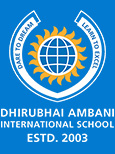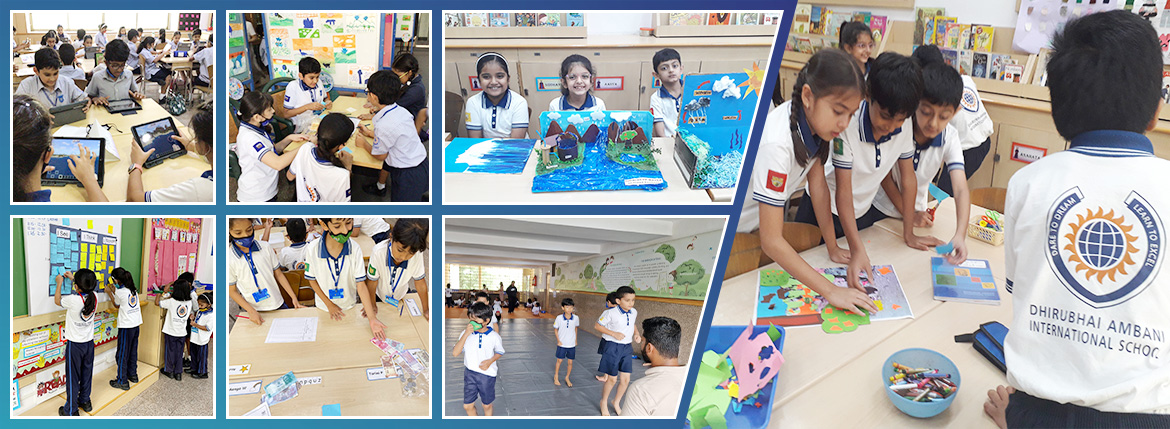IB Primary Years Programme
Classes I to V
DAIS is an authorised school for the International Baccalaureate (IB) Primary Years Programme and pursuing authorization as an IB World School. IB World Schools share a common philosophy—a commitment to improve the teaching and learning of a diverse and inclusive community of students by delivering challenging, high-quality programmes of international education that share a powerful vision.
The IB philosophy, along with the DAIS guiding statements work in harmony to create a school culture that provides opportunities for the development, demonstration and celebration of attributes such as principled, knowledgeable and reflective. As students engage with learning within local and global contexts, they are empowered to contribute to a better world by taking action.
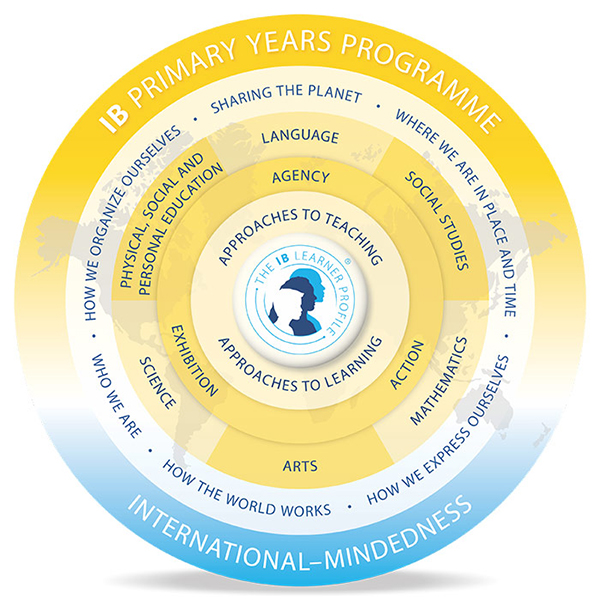
Within the PYP framework, we integrate the core subjects of English, Mathematics, Science and Social Studies along with Music, Art, Physical education, Dance and Drama to create the holistic foundation of our programme. Digital learning is woven throughout our programme and across disciplines. Through a transdisciplinary approach, the acquisition of knowledge, development of conceptual understanding and mastery of skills, our learners build a strong basis within and across disciplines. The six IB PYP transdisciplinary themes allow for the DAIS curriculum to contextualise learning in meaningful ways.
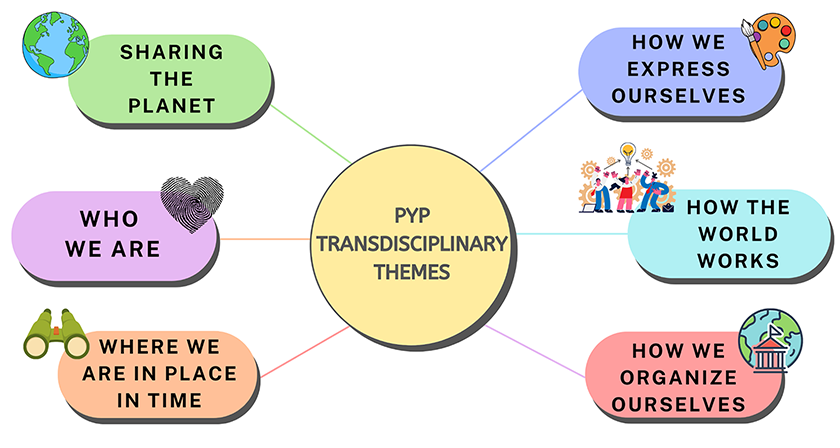
These globally significant themes provide learners with opportunities to explore:
- what it means to be human.
- historical journeys, connecting and contextualising past, present and future.
- creative expression and appreciation.
- scientific principles and innovation.
- man-made systems and organisations
- rights and responsibilities within and across communities, and to the environment.
Our written curriculum has been developed to meet the needs of a holistic education. Academic rigour, social-emotional well-being, values and attributes come together to provide a balanced experience for students in a strong learning community. The inquiry process allows for individual, small group and whole-group experiences that support and strengthen the skills of collaboration and communication.
Our teachers utilise structured and guided inquiry to drive learning, incorporating direct-instruction and modelling through mini-workshops and small group teaching. Learners are supported through inductive and deductive approaches, they are encouraged to; gather data, question and test theories, forming generalisations or “big ideas” of their learning. As students learn how to learn, they are empowered to initiate and co-create learning along with their teachers. Strategies to make thinking and learning visible are utilised consistently to develop habits of the mind.
Emphasis is placed on monitoring and documenting learning as students reflect and self-assess, and receive meaningful feedback from teachers and peers to inform their next steps. Learners use a variety of strategies to monitor and document learning; students are involved in the co-construction of success criteria and learning goals as they take responsibility for their learning.
We celebrate the uniqueness of India and the multilingual treasures it encompasses. Hindi is taught from Lower Kindergarten and Marathi is introduced in Class 1. Students are also offered the option of participating in an after-school Gujarathi programme. Language acquisition begins with listening and speaking and moves onto reading and writing as students develop the necessary skills.Teachers use a variety of strategies and resources to immerse learners in the target language, and make local and global connections to the importance of multilingual skills and cultural relevance.
Subjects
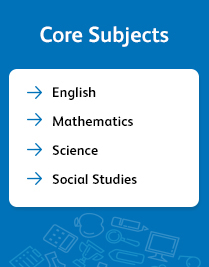
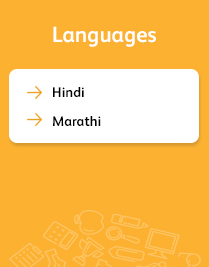
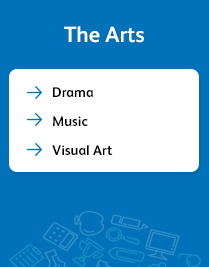
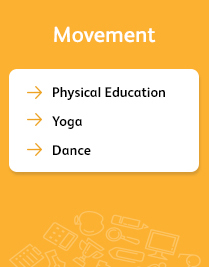
Throughout their Primary years, students will formalise and utilise coding language and skills. Classes I and II build on their concepts through various applications that involve mapping and simple programming. Classes III to V develop their coding skills further by creating structures, simulating environments virtually and programming, using Minecraft, MakeCode and Scratch. Devices such as Jiobooks and iPads help students learn technology, learn about technology and learn through technology. As students begin to participate in digital communities, a strong emphasis is placed on digital safety and citizenship.
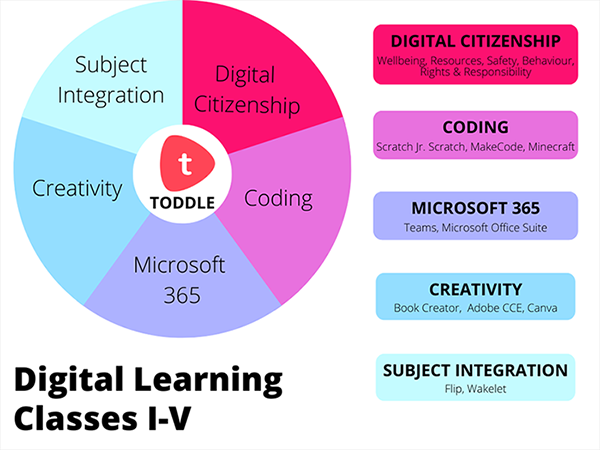
Virtual and physical field trips, activities, projects and presentations provide experiential learning opportunities. Student engagement in community service activities from Class I onwards sensitises them to the needs of the local community.
The Primary students are engaged in team and individual sports to nurture a sense of team spirit and community, as well as individual effort and accomplishment. Students are encouraged to participate in inter-house cultural and sporting events. Specific weekly sessions foster and support opportunities to further passion and abilities. There is a wide range of curricular and co-curricular opportunities offered to help instil confidence and self-management skills. The focus on developing social skills and identity while working with others allows for individual expression, respect and appreciation for diversity.
Learning is documented, monitored and reported using the Toddle platform. The experience allows for a variety of forms to be captured and communicated, such as pictures, videos and audio. Learners and teachers work together to create portfolios that chart the child's journey. Children learn how to reflect, self-assess, peer-assess and receive feedback that will inform next steps. Parents are provided with a window into their child's learning, and they are encouraged to actively participate in the process, through the interactive platform.
Strengthening Student Learning: The Vital Partnership Between Parents and School
In every child's educational journey, the collaboration between parents and school serves as a cornerstone for success. At DAIS, this partnership extends far beyond the classroom walls, encompassing a diverse array of activities and engagements that enrich the overall learning experience. Parents join forces to create an environment conducive to holistic student development.
- Active Participation in School Activities:
Parents serve as invaluable resources by actively participating in various school activities. From assisting with field trips to coordinating reading sessions and executing costumes for annual day celebrations; their involvement enhances the quality and depth of students' educational experiences. By sharing their time, skills, and knowledge, parents contribute to creating vibrant and engaging learning opportunities both inside and outside the classroom. - Supportive Presence in School Events:
Attending parent-teacher meetings (PTMs), Student-Led Conferences (SLCs), and three-way conferences demonstrates parents' commitment to their child's education. These interactions provide valuable opportunities for open communication, allowing parents and teachers to exchange insights, address concerns, and celebrate achievements collaboratively. Through regular dialogue and feedback, parents become active partners in their child's academic progress, fostering a supportive and nurturing learning environment. -
Engagement in School Community Activities:
Participating in school fetes, sports days, and annual day celebrations not only fosters a sense of community but also strengthens the bond between families and the school. By actively engaging in these events, parents demonstrate their support for the school's mission and values while creating lasting memories with their children. -
Collaboration in Educational Initiatives:
Parents collaborate in promoting educational initiatives such as learning walks, where parents have the opportunity to observe classroom activities first-hand and gain insight into their child's learning environment. This collaborative approach encourages a deeper understanding of pedagogical practices and fosters a shared commitment to academic excellence. By working together, parents and teachers can identify areas for improvement and implement strategies to enhance student learning outcomes effectively. -
Cultivation of a Supportive Learning Ecosystem:
By fostering a culture of mutual respect, trust, and cooperation, parents and school create an environment where students feel valued, empowered, and motivated to excel. This collective effort ensures that students receive the holistic support they need to thrive academically, socially, and emotionally throughout their educational journey.
Thus, the collaboration between parents and school plays a pivotal role in shaping the student's learning journey and fostering a culture of excellence. Parents and school work together to create an enriching educational experience for every child. By embracing this partnership, we can empower students to reach their full potential and lay the foundation for lifelong learning and success.
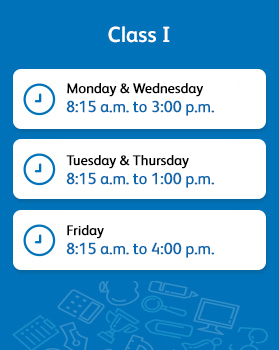 |
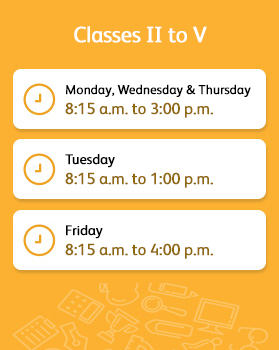 |
